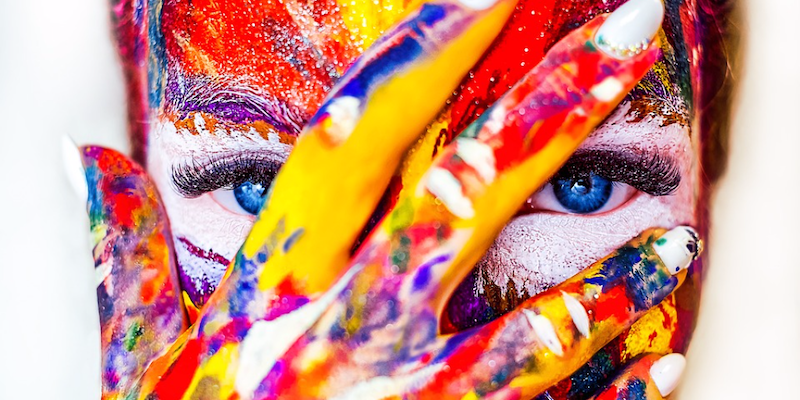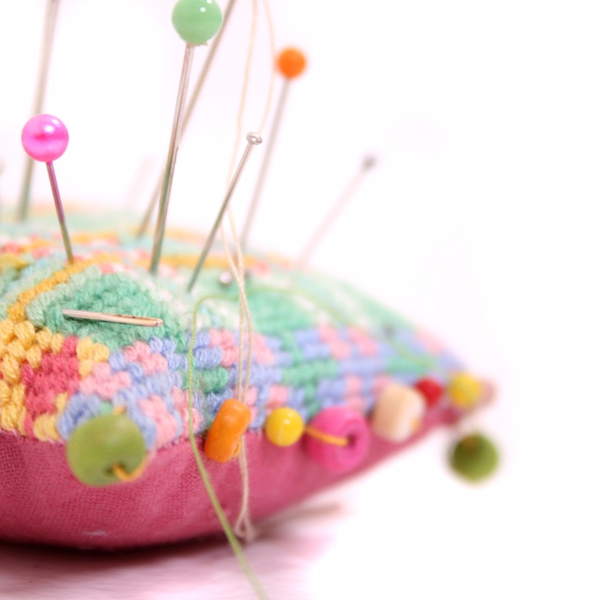How making could boost your mental health and easy ways to get started.

Crafts are all around us, art is in everything, and most importantly, it is something anyone can do – there is a suitable craft for everyone.
Arts and crafts are an opportunity for us to be creative and use our imagination; as an expression of our thoughts and emotions, being creative allows us to connect with and understand who we are. Crucially, it also enables us to share all of these feelings with others.
There is a growing wealth of research and studies that demonstrate the link between making and mental wellbeing* - craft can alleviate the symptoms of anxiety, depression, loneliness and even dementia.
In learning creative skills, making beautiful and useful things, we relax, we enjoy the sensations of colour and texture - and we get enormous satisfaction in being able to say, ‘I made that’. The purpose of CraftCourses.com is to help as many people as possible access that fantastic feeling. Most of us who have practiced arts and crafts will know that making and doing things can be an enormous boost to our happiness and wellbeing and we see that evidenced in over twenty thousand reviews from people with 98% marking the experience as ‘excellent’ and many going on to take further courses or continue the hobby at home!
Here are 5 reasons why taking a craft course could be good for you:
1. It improves wellbeing
Ground breaking new research from BBC Arts Great British Creativity Test has shown that taking part in even a small amount of creative activity can improve your wellbeing, with scientists able to pin point how the brain regulates our emotions during these periods.
‘The arts are linked with dopamine release, which encourages cognitive flexibility, and they reduce our risk of dementia.’
UCL senior research fellow Dr Daisy Fancourt.
Many people stated that crafting was their favourite activity and made them feel happy and reduced stress and feelings of loneliness.

2. It reduces stress
By building self-esteem and increasing confidence taking part in craft learning activities can combat stress by providing a distraction, which in turn, reduces anxiety and negative thought cycles.
It is encouraging to see the Government recognising the positive role of the Arts in mental health, both to patients and the NHS, with several studies highlighting how much money can be saved if arts and crafts became available on prescription.
Added to this, in 2016, researchers from Drexel University in Pennsylvania discovered a 75% decrease in levels of the stress hormone Cortisol after participants had spent 45 minutes crafting.

3. It improves cognitive development
Crafting involves interacting with different tools and improves hand - eye coordination, plus research has shown that there are benefits for both stroke and dementia patients too, as anthropologist Stephanie Bunn showed in hospital studies where basket-making’s spatial and gestural practices have been important for the development of cognitive skills.
4. Reduces isolation and improves social interaction
A craft course, club or workshop can provide a safe and comforting environment and support network, which reduces loneliness and social anxiety. It is a good way to reach across barriers and provide a sense of belonging. They could even lead to new friends and possibly new careers too.
5. Find a new passion
Continuous learning throughout life can give us an increased sense of purpose and the arts can spark a new passion, giving life new meaning and joy. Actively being creative allows you to express yourself and gives a real sense of achievement, and goals.

Easy ways to get started
- Search the 1000’s of listings all across the UK on the CraftCourses website for local workshops and courses by using your postcode to find those closest to you.
You can refine the search by adding in your preferred craft types (there are hundreds!) or specific requirements, such as ‘accessible by public transport’.
If you know someone who would benefit from trying a new craft you could get them a thoughtful CraftCourses gift voucher.
- Discover a free, or very low cost, taster workshop as part of the Get Creative Festival, which runs each year and is an easy way to trial a new creative hobby.
- Visit a local museum – many have free talks, events and great art galleries, which will help to stimulate your creative side.

If you enjoyed reading this you may enjoy reading Get Creative and improve your wellbeing >



